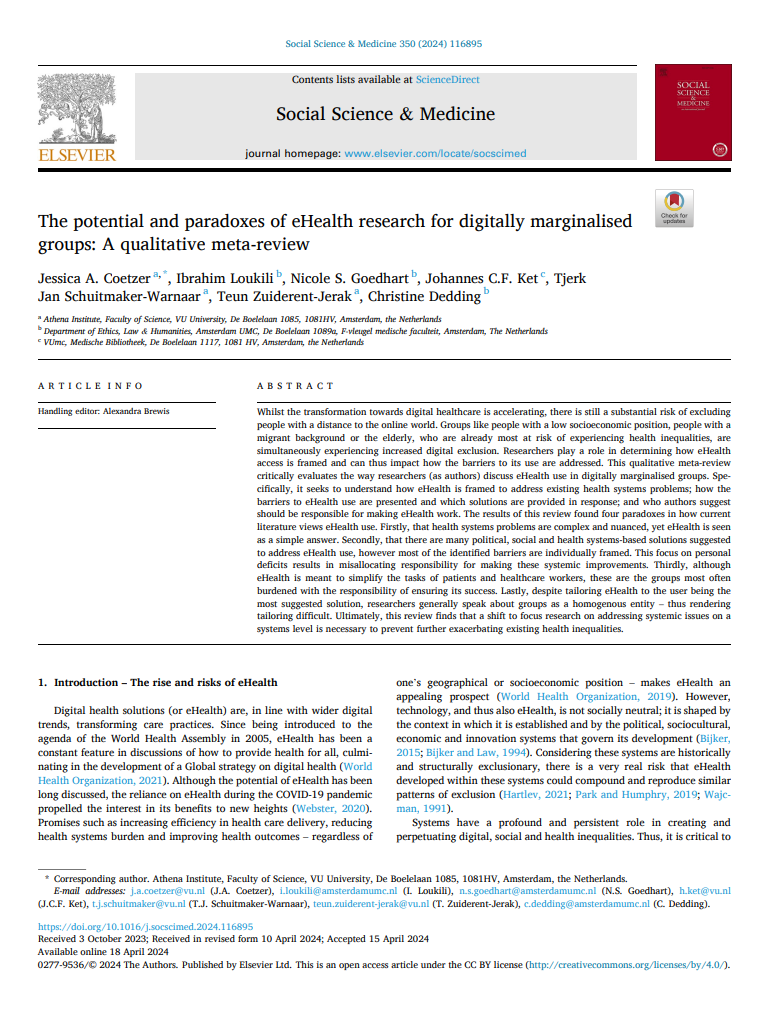The potential and paradoxes of eHealth research for digitally marginalised groups: A qualitative meta-review
Auteurs: Jessica Coetzer, Ibrahim Loukili, Nicole Goedhart, Johannes Ket, Tjerk Jan Schuitmaker, Teun Zuiderent-Jerak en Christine Dedding
Whilst the transformation towards digital healthcare is accelerating, there is still a substantial risk of excluding
people with a distance to the online world. Groups like people with a low socioeconomic position, people with a
migrant background or the elderly, who are already most at risk of experiencing health inequalities, are
simultaneously experiencing increased digital exclusion. Researchers play a role in determining how eHealth
access is framed and can thus impact how the barriers to its use are addressed. This qualitative meta-review
critically evaluates the way researchers (as authors) discuss eHealth use in digitally marginalised groups. Specifically, it seeks to understand how eHealth is framed to address existing health systems problems; how the
barriers to eHealth use are presented and which solutions are provided in response; and who authors suggest
should be responsible for making eHealth work. The results of this review found four paradoxes in how current
literature views eHealth use. Firstly, that health systems problems are complex and nuanced, yet eHealth is seen
as a simple answer. Secondly, that there are many political, social and health systems-based solutions suggested
to address eHealth use, however most of the identified barriers are individually framed. This focus on personal
deficits results in misallocating responsibility for making these systemic improvements. Thirdly, although
eHealth is meant to simplify the tasks of patients and healthcare workers, these are the groups most often
burdened with the responsibility of ensuring its success. Lastly, despite tailoring eHealth to the user being the
most suggested solution, researchers generally speak about groups as a homogenous entity – thus rendering
tailoring difficult. Ultimately, this review finds that a shift to focus research on addressing systemic issues on a
systems level is necessary to prevent further exacerbating existing health inequalities.
︎︎︎ Link
